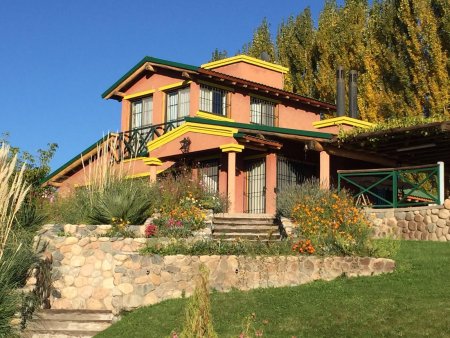New Opportunities After the Rural Land Law Repeal
Argentina’s agricultural sector is once again in the spotlight. For foreign investors exploring rural property investment, recent policy changes have redefined what’s possible. The country’s evolving rural land ownership laws are reshaping access to farmland, igniting renewed global interest in the Argentine real estate investment market.
The Evolution of Argentina’s Rural Land Law
Enacted in 2011 under President Cristina Fernández de Kirchner, the Rural Land Law (Law No. 26.737) capped foreign ownership of rural land at 15% nationally and provincially, while banning purchases in coastal and border zones. The measure aimed to safeguard sovereignty and prevent speculative acquisitions of prime agricultural properties. Critics, however, saw it as a brake on economic progress, particularly in sectors like export farming and vineyard development—areas that attract BBI Argentina’s international clientele.
From Restriction to Deregulation: The Milei Reforms
The administration of President Javier Milei reversed this restrictive approach through Decree No. 70/2023, repealing the rural land ownership limits to foster a free-market model. This move, part of a broader wave of economic reforms, aimed to position the country as a hub for foreign direct investment in real estate and agribusiness.
Although the repeal is currently under judicial review, the market response has been immediate. High-net-worth investors and agribusiness funds have begun reassessing opportunities across Buenos Aires Province, Córdoba, and the Mendoza wine region—regions known for fertile soils and scalable production potential.
Argentina in the Global Land Investment Context
Argentina’s real estate framework sits midway between open markets like the United States and more protectionist nations like Brazil and Bolivia. Under the new reforms, the country now competes internationally as an emerging destination for agricultural real estate investment, vineyard acquisitions, and large-scale farmland operations.
Meanwhile, local producers and Argentine investors are re-entering the rural market, combining domestic expertise with international partnerships. This growing investor diversity supports the country’s broader transition toward economic liberalization.
Strategic Outlook for Foreign Buyers
Despite lingering court uncertainties, Argentina’s real estate law reforms signal a decisive pivot toward transparency, efficiency, and foreign participation. For foreign buyers, this moment offers a narrow but valuable window to secure long-term agricultural land holdings, particularly in provinces where foreign ownership still remains well below the 15% ceiling.
Engaging with specialized legal professionals and advisers—such as BBI Argentina’s investment and immigration team—is critical to ensuring compliance with registry, zoning, and ownership certification requirements while optimizing for future growth.
A Balanced Path Forward: Investment with Sovereign Integrity
While deregulation promises accelerated growth, it also calls for responsible investment practices that align with national interests. The ideal framework merges open access to foreign real estate investment with sustainable land stewardship, regional development, and job creation.
As the Argentine rural property market stabilizes, investors who act early are likely to benefit most from capital appreciation and the long-term expansion of the agribusiness and wine sectors.
BBI Argentina offers comprehensive advisory services in rural land acquisition, real estate investment, and investor visa programs. Our bilingual team provides full legal and operational support—from property selection and due diligence to immigration strategies—helping clients invest securely and strategically in Argentina’s most promising rural regions.






























